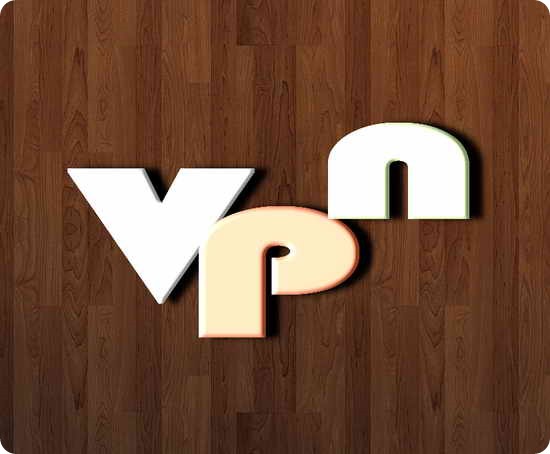Internet has bridged distances. Now we could we sitting hundreds of miles apart, but still connected every moment via internet. Technologies like video conferencing, online whiteboards, and collaborating on documents have removed the need to travel. We can be in our own offices, and still be with everyone else.
So how to ensure that the communications between two close friends, or two global offices of a corporation, stay safe from the prying eyes lurking out there? Read on to find out, folks.

What is VPN?
VPN stands for Virtual Private Network. And in a way, that explains it concisely too. As the expansion of the acronym goes, it’s just a private network that’s virtual. But hey, that’s just rephrasing the stuff. I know, I’m getting there guys.
VPN is a network technology that creates a secured network over an unsecured one. Here, the unsecured network refers to the INTERNET. The reason the Internet is insecure is simple, it’s open and not monitored in the strictest sense. Anyone with the right knowledge and tools can have access to as much information travelling through it as he/she wants. Obviously, the consequences can be disastrous. To explain, consider the two scenarios:
- A Malevolent hacker cracks some unsuspecting user’s Facebook profile, and uses it to post objectionable content on others’ profiles. This leads to an identity theft, and creates misunderstanding(s).
- A little more advanced hacker gains access to some confidential data on a company’s private server, and sells it to the rival for a hefty paycheck. This, obviously means huge financial & other losses for the victim.
This is where VPN comes into play. Now, corporations and their regional offices spanning continents need to communicate with each other. And due to distance constraints, the Internet is the only way to go. But then, that is susceptible to spoofing. So through VPN, these corporations create a secure private network, layered over the unsecured network (the Internet) and use that layered secured network to communicate with each other using encrypted communications.
So, in the simplest terms, a VPN is a secure network created over the existing Internet, that is used by businesses (and by casual users too) to encrypt their communications, thereby securing them from eavesdropping, even though the network on which they travel is an unsecure one.
This article is a part of article series titled ILFS Explains. Some other interesting topics I covered earlier include What is Usenet, What is Two Factor Authentication, and What are Web Security Certificates.
How does a VPN work?
Well, this is something that will probably need a whole series of articles to be explained in gory detail. VPN is a complex system comprising multiple authentications, secure protocols, time dependent authentication codes that expire after their validity, and stuff like that. But the following pointers should help you guys get a general idea of the technology.
- At the very basic level, consider two computers placed in globally separated offices of a company, that want to establish secure communication over the Internet.
- Each one of those computers, first logs in through a special software called a VPN client, or a special website that acts like a sort of online install independent client.
- Both computers enter their secure credentials (username and password) in the VPN client or website, thereby authenticating themselves. This happens when their authenticating credentials are matched to the private keys stored on the VPN server (that the clients act as an interface to).
- When both of the computers are authenticated, all of their communications are encrypted/decrypted end to end, before being sent/received via the Internet.
- Thus, when this secure communication travels over the unsecured Internet, it is encrypted strongly. The only means to decrypt it (usually keys) are with the users that communicate via it, namely the sender and receiver.
- Whenever any new user wants to connect to an already existing VPN, he/she logs in through the VPN client, using secure authentication like a time dependent key, password or a PIN. The PIN is time dependent in the sense that it is invalidated after a specific duration (say a minute). It’s also randomly generated at regular intervals, thus being impervious to spoofing.
Even though VPN is primarily used by global corporations, but free software like Comodo EasyVPN and Softether VPN let you create your own VPNs, probably to communicate with friends, family, or anyone else.
How does VPN benefit Internet Users?
- The privacy conscious user: A user logs in to the Internet, via VPN, thereby tunneling all the data to/from his/her machine through a secured layer. This normally makes him/her secure from the prying eyes out there. Let’s just say, you are downloading a file. With no VPN, anyone can find out where you logged in from and who’s your ISP (through your IP). But with VPN, chances are reduced significantly as all your data is encrypted, and your IP is either masked or scrambled.
- The video junkie: Let’s just say you love watching videos on VEVO. But it’s not available in your country. Using a VPN scrambles your IP to provide you with an IP that matches some country where it’s available. Go on and have fun, VPN’s your friend.
Conclusion
We use Internet for almost everything we do these days. With more and more of our communications taking place online, it becomes increasingly important that they are secured using the best ways possible. This is where services like VPN come to the rescue. They help in masking our communications, preventing them from eavesdropping. Thus, VPNs ensure that our conversations stay between only the people they’re intended for, us and our loved ones.
What do you guys think about VPN? Do you use some VPN services? How good do you think they are? Let me know your thoughts in the comments below.